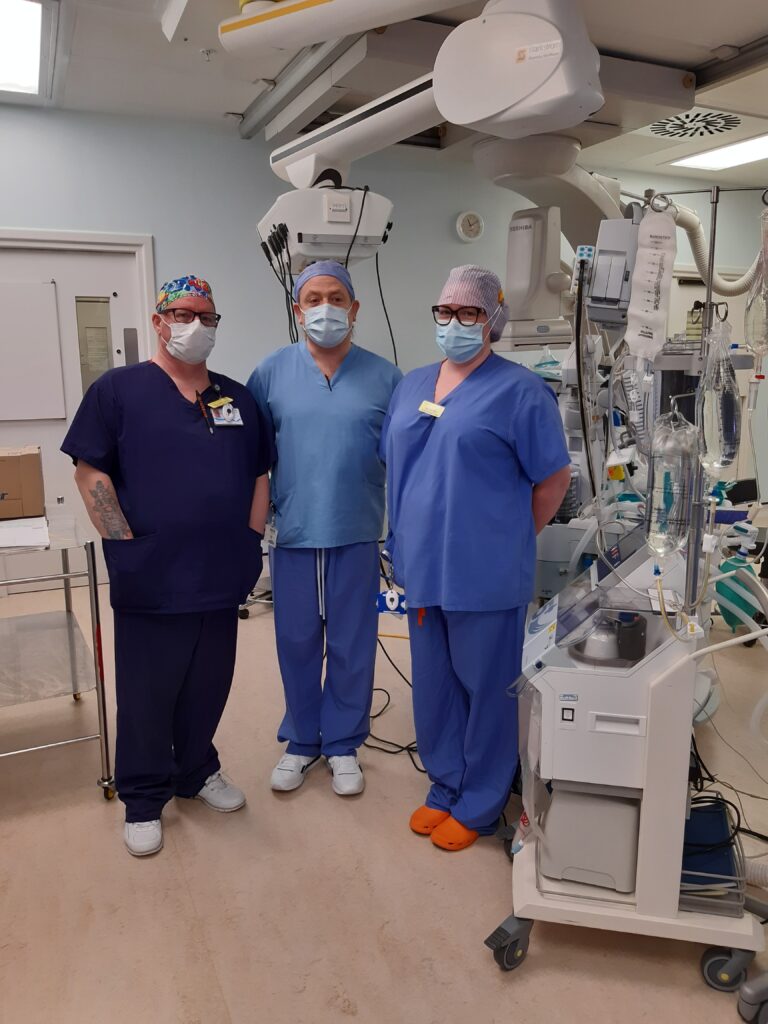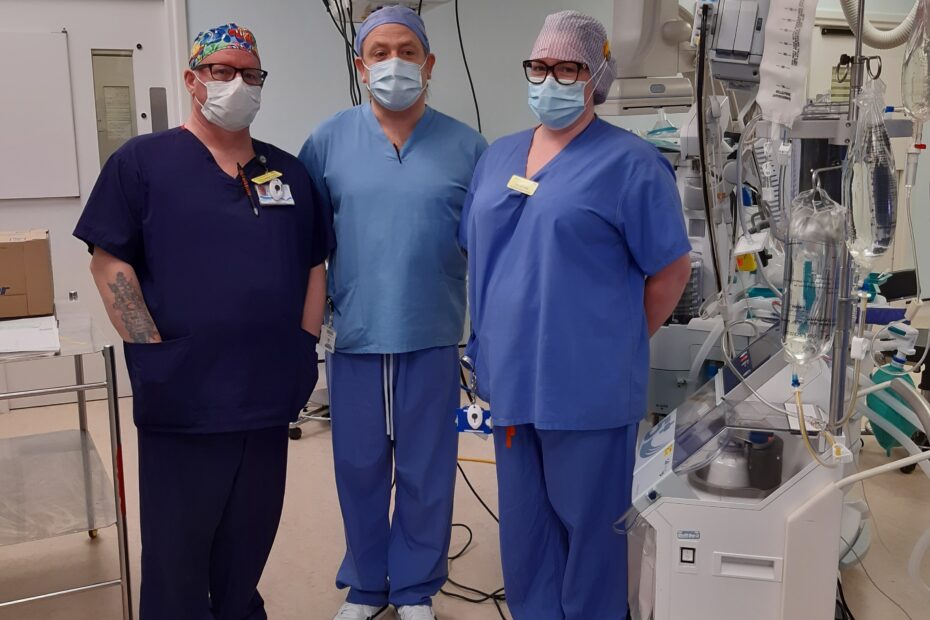
A technique which helps avoid the need to transfuse patients during major surgery is reducing pressure on blood banks and improving patient outcomes.
Vascular and Orthopaedic surgical teams at the Queen Elizabeth University Hospital (QEUH) have now trained up 14 staff in ‘intraoperative blood cell salvage’ (ICS) which allows them to use a specially designed machine to collect, filter and re-transfuse blood which would normally be lost during an operation.
Patients undergoing elective major aortic surgery and major orthopaedic joint surgery can normally expect to lose 800mls to 2500mls of blood, which can potentially be life-threatening. Significant blood losses must be replaced – usually with donor blood transfusions. Regular use of intraoperative blood cell salvage at QEUH has reduced the reliance on donor blood for transfusions, taking pressure off blood banks and reduced complications associated with transfusions.
The blood cell salvage machine works by collecting blood from a surgical field with a special suction device. The blood is then anti-coagulated (mixed with agents to stop clotting) and processed in the main cell salvage unit which uses a filter and centrifuge to wash the blood before it is given back to the patient intravenously. The process is overseen by the Consultant Anaesthetist who is responsible for the intraoperative care of the patient. The portable machines can be used in any theatre and the main theatre suite at the QEUH currently has four in operation.
The QEUH training programme has led to staff from across disciplines such as healthcare support workers, theatre nurses and medical staff being upskilled to maximise the use of the machines, and the Department of Anaesthesia is looking to roll out the training programme to additional services.
Dr Indran Raju, Consultant Anaesthetist at QEUH, together with Senior Charge Nurses Jeanne-Marie Martin and Lorraine Hamill and Dr Malcolm Watson, Consultant Anaesthetist, set up the training programme at the QEUH after identifying the need to establish a formal blood cell salvage service after successfully using the technology for major vascular cases.
Dr Raju, Consultant Anaesthetist and the service lead said:
“Cell salvage has a host of benefits both for the patient and the wider healthcare system. Most importantly, it mitigates the risks involved with blood transfusions and it significantly aids patient recovery, as they get their own blood back. There is also the benefit to transfusion services by reducing the need for donor blood and it provides a method to sustainably maintain donor blood stocks for those patients who need it most and haven’t got the blood cell salvage option. This is especially important in the current climate as the number of blood donors across Scotland dropped by 13,000 in 2021 and is at its lowest level at any point this century.
“The volunteer training programme has been very effective in allowing healthcare support workers to be directly involved with surgical patient care which helps ensure the patient’s safety and enables more patients to benefit from blood cell salvage. It also provides an extended role for our healthcare support workers. We have a mixture of experienced operators like Kenny Rowan (orthopaedic ICS) and Alex Hunter (vascular ICS) and more junior members joining the blood cell salvage team.”
Alex Hunter is one of the first healthcare support workers to be trained in the use of the blood cell salvage machine and has to date overseen the blood cell salvage process for more than 46 aortic operations. Alex said:
“The training programme is a great opportunity for healthcare support staff to get more directly involved in patient care and I’d encourage everyone to do the training. Cell salvage continues to grow as a service as the clinical benefits are increasingly recognised by healthcare professionals. The more staff we have who can operate cell salvage machines, the more we’re able to utilise the technology, meaning more people can benefit directly, and more pressure is taken off blood banks, where stocks can fluctuate significantly on a weekly basis.”
ENDS

